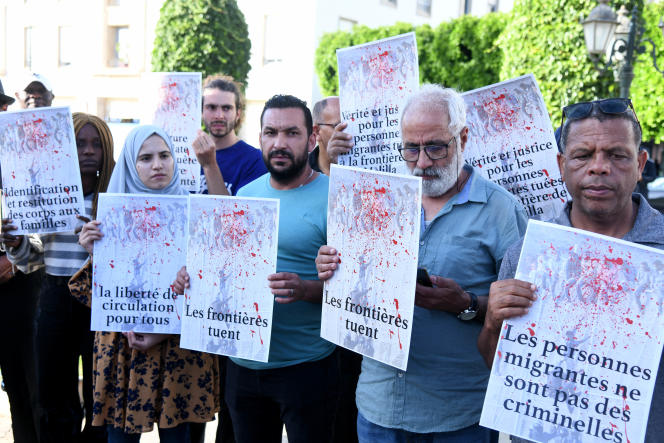The question of the violation of human rights in the tragedy of Melilla, which cost the lives of at least twenty-three migrants on June 24, must be raised in Rabat, estimated Sunday July 3 the Spanish Prime Minister in a daily interview El País.
Asked about the images of the tragedy that he said he had not seen during his last intervention on Wednesday on the subject, and about “respect for human rights in such a situation”, Pedro Sanchez affirmed that ” it is the government of Morocco that should answer this question.” “We have to talk about what we do in Spain,” Pedro Sanchez continued.
However, he immediately qualified his remarks by saying “recognize the effort made by Morocco, which suffers from migratory pressure, to defend borders which are not its own but those of Spain” and referring to “solidarity” which, in his view, Spain and Europe must show vis-à-vis Morocco.
On June 24, at least 23 African migrants died as some 2,000 people tried to force their way into Melilla, according to Moroccan authorities, the highest death toll ever recorded at the borders between Morocco and the United States. two enclaves. NGOs identify “at least thirty-seven” dead.
acts of brutality
Footage released several hours later revealed acts of brutality, with bodies strewn on the ground, Moroccan police beatings and Spanish security forces firing tear gas at men hanging from fences, according to the report. NGO Human Rights Watch (HRW).
Melilla is, together with the city of Ceuta, one of the two Spanish enclaves located on the northern coast of Morocco, the only land borders of the European Union (EU) with the African continent.
For the Prime Minister, Melilla is “the last episode of a tragedy that began long before, several kilometers away”, speaking again of a violent attack, with “armed” men, and an orchestrated event by the “mafias”, an argument that the Spanish government has never ceased to brandish since this affair.
It provoked international indignation, including remarks of rare severity from the UN, as well as the opening of two investigations in Spain and an information mission in Morocco.
This new migration drama at the gates of the EU comes after Madrid and Rabat normalized their relations in mid-March following an almost year-long diplomatic quarrel over the disputed territory of Western Sahara. .

















